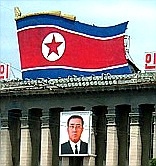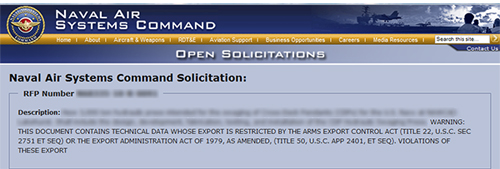 Wesco Industrial Products, Inc., a U.S.-based manufacturer of material handling equipment such as hand trucks and fork lifts recently agreed to pay the Bureau of Industry and Security (“BIS”) $50,000 to settle charges that it had illegally exported pressure relief valves without licenses. The pressure relief valves were allegedly classified as ECCN 2B350.g.
Wesco Industrial Products, Inc., a U.S.-based manufacturer of material handling equipment such as hand trucks and fork lifts recently agreed to pay the Bureau of Industry and Security (“BIS”) $50,000 to settle charges that it had illegally exported pressure relief valves without licenses. The pressure relief valves were allegedly classified as ECCN 2B350.g.
Wesco is the successor to Neptune Chemical Valve company due to a series of mergers that occurred in 2008, and the exports of the Neptune valves involved in this case occurred prior to these mergers. Neptune still has its own website and, helpfully, posts export classifications for its valves, including the valves at issue, on this page. Interestingly, that page says this:
Note that BIS has issued a CCATS determination of EAR99 for Neptune’s Back Pressure Valves, but due to the interchangeability of back pressure valves and pressure relief valves, Neptune has decided to treat the Back Pressure Valves as [ECCN] 2B350 for internal compliance purposes.
Indeed, as explained here, pressure relief valves and back pressure valves are the same device employed in different applications. A pressure relief valve opens up to vent fluids and gases externally when pressure is too high whereas a back pressure valve opens up to maintain pressure by allowing upstream excess pressure to flow downstream.
This raises the question as to why, if Neptune’s back pressure relief valves are EAR99, Neptune was being penalized for exporting interchangeable and equivalent devices. It shouldn’t be relevant that a formal classification for the pressure relief valves had not yet been obtained. That should have been obtained in the course of this investigation as a predicate to the charged violation.
Chances are extremely good that the back pressure valves were classified as EAR99 based on Note 1 to ECCN 2B350 which states:
This ECCN does not control equipment that is both: (1) specially designed for use in civil applications (e.g., food processing, pulp and paper processing, or water purification) and (2) inappropriate, by the nature of its design, for use in storing, processing,producing or conducting and controlling the flowof the chemical weapons precursors controlled by 1C350.
Interestingly, a pressure relief valve is more likely inappropriate by design for use in producing chemical weapons precursors than a back pressure valve because a pressure relief valve is designed to vent excess pressure outside the system, something that’s not really ideal when the substances to be vented are toxic. Back pressure valves, however, are designed to keep the pressure in the system and simply to move it downstream. If Neptune’s back pressure valves fit within Note 1, it would seem that there is an even stronger case that the pressure relief valves would fit within the Note.
 A UN report leaked to the Associated Press revealed that North Korea has been exporting nuclear and missile technology and items to Iran, Syria and Burma. According to that report, the Norks are using shell companies, intermediaries and criminal networks to evade sanctions imposed by the UN on the rogue state.
A UN report leaked to the Associated Press revealed that North Korea has been exporting nuclear and missile technology and items to Iran, Syria and Burma. According to that report, the Norks are using shell companies, intermediaries and criminal networks to evade sanctions imposed by the UN on the rogue state.
 Posted by
Posted by  Category:
Category: 



 On Friday, the Department of State announced that it had terminated sanctions against various Russian entities. First, it
On Friday, the Department of State announced that it had terminated sanctions against various Russian entities. First, it  Regular readers know that an on-going feature involves examining press releases issued by companies after they have registered their company with the Directorate of Defense Trade Controls (“DDTC”) as required under Part 122 of the International Traffic in Arms Regulations. All of these press releases seems to be punched out from the same template and routinely overstate the significance of DDTC registration. Many of these releases, like
Regular readers know that an on-going feature involves examining press releases issued by companies after they have registered their company with the Directorate of Defense Trade Controls (“DDTC”) as required under Part 122 of the International Traffic in Arms Regulations. All of these press releases seems to be punched out from the same template and routinely overstate the significance of DDTC registration. Many of these releases, like 

